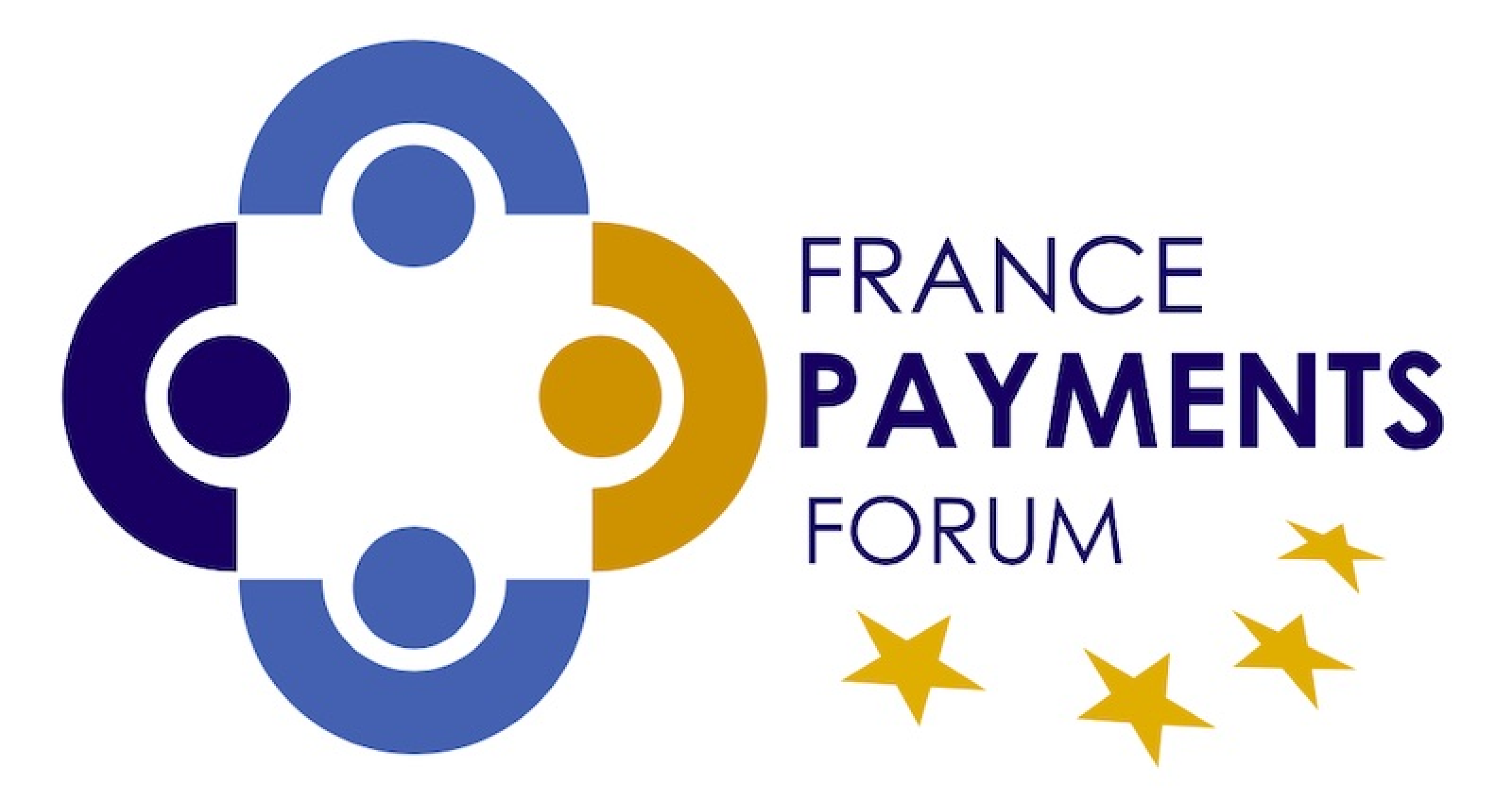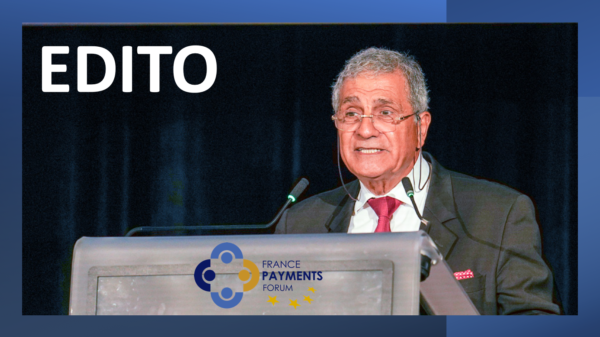1 – FRANCE




- Une réunion du groupe de travail sur la révision de la DSP, qui s’est tenue le 7 juillet et a été l’occasion d‘un échange de vues sur la proposition législative de la Commission publiée le 28 juin et sur les orientations de la Direction Générale du Trésor, notamment sur les dispositions relatives à la lutte contre la fraude et sur l’open banking.
- Une réunion du groupe de travail sur l’euro numérique, qui s’est tenue le 13 juillet et qui a été centrée sur les travaux législatifs. La présentation par la Direction générale du Trésor des dispositions-clé des textes proposés par la Commission et publiés le 28 juin a été suivie d’un large échange de vues.


Revue de presse
- Paiement : l’inexorable déclin du cash | Les Echos (21 août)
- Utilisé désormais pour un paiement sur deux, l’argent liquide est-il amené à disparaître? (bfmtv.com) (22 août)

2 – EUROPE
2.1 – Cryptos
L’ESMA (European Securities and Markets Authority) a publié le 12 juillet un document de consultation sur les “Technical standards specifying certain requirements of MiCA”
Revue de presse
Réguler progressivement les crypto-monnaies : le pari gagnant de la France (Stéphanie Cabossioras)
2.2 – Règlement sur les données (Data Act)
Dans un communiqué du 28 juin, la Commission européenne a salué l’accord politique intervenu entre le Parlement européen et le Conseil de l’Union européenne au sujet du règlement européen sur les données.
2.3 – Règlement sur les services numériques (DSA)
A l’occasion de son entrée en vigueur le 25 août, Les Échos ont consacré une série d’articles au Règlement européen sur les services numériques
- DSA : les grandes plateformes numériques rentrent dans le dur de la régulation européenne | Les Echos
- Digital : la voie européenne | Les Echos
- Ce que le DSA change en pratique pour le grand public | Les Echos
- Cinq angles morts du DSA, la régulation sur la modération des contenus en ligne | Les Echos
2.4 – Identité numérique
Dans un communiqué du 29 juin, le Conseil de l’Union européenne a annoncé que « la présidence du Conseil et les représentants du Parlement européen sont parvenus à un accord politique provisoire sur les principaux éléments d’un nouveau cadre pour une identité numérique européenne ».
2.5 – Transferts transatlantiques de données
Article de la Chaire digital, gouvernance et souveraineté de Sciences Po « Quel avenir pour les transferts transatlantiques de données après la sanction de Meta par l’autorité de protection des données irlandaise ? »
 3- INTERNATIONAL
3- INTERNATIONAL
3.1 – Réglementation des cryptos
Signalons tout d’abord la publication par Atlantic Council d’un « Cryptocurrency Regulation Tracker », base de données qui fait un suivi régulier, sur 45 pays (les pays du G20 et ceux qui ont les taux les plus élevés d’adoption des cryptos), de l’activité et de la régulation des cryptos.
La réglementation des cryptos était à l’ordre du jour de la réunion des ministres des finances et gouverneurs de banques centrales du G20 qui s’est tenue les 17 et 18 juillet. Dans son communiqué du 17 juillet, le Financial Stability Board (FSB) a annoncé la publication d’un rapport intitulé « FSB global regulatory framework for crypto-asset activities ».
Quelques jours plus tôt, la BRI avait publié un rapport intitulé « The crypto ecosystem : key elements and risks », qui faisait partie du dossier soumis aux ministres et gouverneurs du G20 pour leur réunion précitée.
Par un communiqué du 15 août, l’Autorité Monétaire de Singapour (MAS) a annoncé que suite à la consultation publique qu’elle avait lancée en octobre 2022, elle avait finalisé son cadre de réglementation des stablecoins, soulignant que celui-ci « seeks to ensure a high degree of value stability for stablecoins regulated in Singapore ».
3.2 – Monnaies numériques de banque centrale (MNBC)
3.2.1 – Publications d’organisations internationales
La BRI a publié au cours de l’été plusieurs études sur les MNBC.
Une étude intitulée « Blueprint for the future monetary system », constituant le chapitre 3 de son rapport économique annuel 2023 et qui introduit la notion de « unified ledger », présentée comme « a new type of financial market infrastructure – a unified ledger – could capture the full benefits of tokenisation by combining central bank money, tokenised deposits and tokenised assets on a programmable platform ».
Un rapport intitulé « Lessons learnt on CBDCs », résumant à l’intention des ministres et gouverneurs du G20 les leçons tirées de douze projets de MNBC (de détail et de gros) conduits sous l’égide du BIS Innovation Hub . Ces leçons peuvent se résumer en trois points :
- Wholesale CBDCs will be driven by the public and private sector quest to shape the future of trading and settlement;
- A retail CBDC is a complex undertaking and not only for central banks;
- Cross-border CBDC arrangements are a novel territory, and more complicated than their domestic counterparts.
Un rapport intitulé “Results of the BIS 2022 survey on CBDCs and crypto”, ainsi que la mise à jour semestrielle (à juillet 2023) de son CBDC dataset, base de données qui fait un suivi des projets de MNBC à travers le monde.
Le CFA Institute a de son côté publié fin juillet un rapport intitulé « Global survey on CBDCs », rapport qui, selon un article Finextra du 17 août « suggests industry is divided on CBDCs ».
Le World Economic Forum a publié le 29 juin un rapport intitulé “CBDC global interoperability principles ».
3.2.2 Revue de presse générale sur les MNBC
Parmi les nombreux articles publiés sur les MNBC au cours de l’été, signalons :
Deux articles du Financial Times :
- Central banks must not be blind to the threats posed by CBDCs
- CBDCs invite risk of global financial fragmentation
Une “Opinion” de Maria Demertzis et Josh Lipsky dans Les Échos
Monnaies numériques : les États-Unis et l’UE doivent accélérer
Une série de cinq articles dans la Revue Intereconomics
- The Geopolitics of Central Bank Digital Currencies
- The Business Case for Exploration of a U.S. Central Bank Digital Currency
- Domestic and Global Implications of China’s Digital Currency
- The Evolution of SandDollar (Bahamas)
- Progress with the Digital Euro – Intereconomics
Une présentation John Kiff (slides) Retail CBDC Current Landscape
Un Post LinkedIn d’Ousmène Jacques Mandeng « rationale for retail CBDC limits seems weak »
3.2.3 – Revue de presse par pays

Dans son rapport “Article IV” sur le Brésil, le FMI évoque le projet brésilien de MNBC de gros, dans lequel il souligne en particulier que « In most countries, plans to introduce a CBDC pursue a combination of objectives, including promoting financial inclusion; making payments systems more competitive, resilient, and cost-effective; and improving cross-border payments. In Brazil, Pix has already been successful in improving financial inclusion and enabling efficient retail payments. Hence, the Digital Real is envisioned as a ‘smart’ platform for financial services based on a digital ledger (DLT) that leverages the digital representation of assets (tokenization) and programmability, seeking to foster innovation».
Selon une dépêche Reuters du 7 août, la Banque centrale du Brésil annoncé que sa future MNBC, rebaptisée « DREX » et basée sur la DLT, serait lancée fin 2024 à l’issue d’une période de tests. Toutefois, deux articles publiés fin août, l’un par Ledger Insights (Brazil’s CBDC falls behind schedule as central bank suspends innovation lab), l’autre par Reuters (Privacy, market maturity hurdles facing Brazil’s CBDC rollout), laissent entendre que le planning n’est pas encore stabilisé

La Banque du Canada a publié le 10 août une étude intitulée « Unmet Payment Needs and a Central Bank Digital Currency » qui, selon un article Finextra du 14 août « casts doubts on CBDC value »

Parmi les articles publiés au cours de l’été sur le e-yuan, on notera en particulier :
Cinq articles relatant l’élargissement des cas d’usage dans le cadre des expérimentations pilotes du e-yuan
- China to add digital yuan payment functions to social security cards | Kitco News
- Chinese city of Jinan accepts CBDC payments for bus rides (cointelegraph.com)
- Digital yuan integration introduced to Chinese business air travel (cointelegraph.com)
- China launches digital yuan ATMs in tropical Sanya, allowing tourists to exchange foreign cash for e-CNY | South China Morning Post (scmp.com)
- Tourists from Mainland China can now shop in Hong Kong with Chinese CBDC (forkast.news)
Deux articles relatifs aux transactions en e-yuan, relayant les propos du gouverneur de la PBOC, Yi Gang, lors d’une conférence à Singapour le 19 juillet. Depuis le début des expérimentations pilotes (fin 2019), le nombre de transactions en e-yuan atteignait 950 millions (pour 120 millions de wallets ouverts) et une valeur cumulée de 1 800 milliards de yuan (= USD 250 milliards). Mais, comme le souligne Yi Gang le montant de e-yuan en circulation ne représente aujourd’hui que 0,16% du cash (billets et pièces) en circulation.
- China’s digital yuan transactions seeing strong momentum, says cbank gov Yi | Reuters
- China’s digital yuan nears $250B transaction volume — Central bank governor (cointelegraph.com)

Parmi les articles ou publications de cet été sur le Digital Dollar, on notera :
Un speech de Graham Steele (Département du Trésor US) sur la digitalisation des services financiers, dans lequel il évoque assez longuement les questions soulevées par une MNBC de détail, en particulier la privacy, comme le souligne un article de Cointelegraph.
Un article de la Revue Banque : « Les États-Unis entrent en phase de test ».
Deux rapports du Digital Dollar Project, Fondation américaine très favorable à un Digital Dollar
- Risk Working Group Paper (digitaldollarproject.org)
- DDP_Retail Cross-Border Remittance Payments_DRAFT (digitaldollarproject.org)
Trois articles de Cato Institute, think tank américain très opposé à un Digital Dollar
- Poll: Only 16% of Americans Support the Government Issuing a CBDC
- Introducing a CBDC Would Be a Catastrophe for the Banking System
- CBDC Legislation Recap

Le lancement du projet italien « Leonidas » de MNBC de gros, conduit par la Banque d’Italie en collaboration avec 18 banques italiennes, l’Association Bancaire Italienne, R3 et NTTb Data Italia, a été annoncé courant juin
- Project Leonidas: R3 is delighted to be joining forces with ABI Lab, ABI and NTT Data Italia to revolutionize Italy’s financial landscape | R3
- 18 Italian banks collaborate for wholesale CBDC relying on blockchain – CoinGeek
- Italian banks cooperate in CBDC project – ThePaypers

Côté Digital Pound, on notera un discours du gouverneur de la Banque d’Angleterre (Andrew Bailey) le 10 juillet sur le thème « New prospects for money », dont la Digital Pound Foundation a notamment retenu que le gouverneur « urges banks to progress tokenised bank deposits ».
La Banque d’Angleterre a par ailleurs publié le 24 août une étude intitulée “Enabling innovation through a digital pound”
On notera enfin la publication dans le Financial Times du 1er août d’un article critique d’Andy Haldane, ancien chef économiste de la Banque d’Angleterre : « The real scandal of central bank digital currency »

La Banque de Russie a annoncé par un communiqué du 11 juillet que la loi sur le rouble digital venait d’être adoptée par la Douma (le Parlement russe).
Un communiqué du Kremlin du 24 juillet a ensuite confirmé que le Président Vladimir Poutine avait signé le texte. Le communiqué précise que « The digital ruble is defined as a non-cash monetary means. Payments and settlements with digital rubles are to be carried out by way of digital ruble transfers performed by the Bank of Russia using the digital ruble platform in accordance with Russian laws on the national payment system ».
Par un communiqué du 13 août , la Banque de Russie a annoncé que les tests pilotes sur le rouble digital débuteraient le 15 août, en collaboration avec 13 banques. Mais, comme illustré par la petite sélection d’articles de presse ci-dessous, même si l’élan est donné, un certain nombre de questions demeurent.
- Moscow moves ahead with digital currency | Financial Times (ft.com)
- Russia’s finalized CBDC law leaves questions over privacy – Ledger Insights
- Russia Recognizes Digital Currencies of Other Nations – Finance Bitcoin News
- Russian banks have digital ruble questions. Consumers unclear on need for CBDC – Ledger Insights

Par un communiqué du 23 août, la Banque de Suède présenté un point d’avancement des travaux sur son projet e-krona et indiqué que celui-ci entrait dans une nouvelle phase, tout en précisant qu’à ce stade « aucune décision n’a été prise d’émettre une e-krona ».
3.3 – Systèmes de paiement de banque centrale
3.3.1 – États-Unis
Le fait saillant de l’été a été le « go live » de FedNow, le service de paiement instantané de la FED, annoncé par un communiqué du 20 juillet. Pour plus de détails sur FedNow, aux deux FAQ mises en ligne par la FED : une FAQ principale centrée sur FedNow, et une FAQ additionnelle centrée sur les paiements instantanés en général.
Parmi les articles publiés autour du démarrage de FedNow, on notera deux articles du Payments Journal : 6 Ways FedNow Will Transform the Payments Industry et Instant payments set to soar as the FedNow service comes on line
3.3.2 – Royaume-Uni
Dans un speech du 20 juillet (« Payments : it’s all change »), Victoria Cleland (Banque d’Angleterre) a fait le bilan de la migration ISO 20022 du RTGS britannique et évoqué les prochaines phases du programme de modernisation du RTGS, la deuxième phase consistant à mettre en place un nouveau « core settlement engine ».
3.3.3 – BCE
La BCE a publié le 16 juin ses rapports annuels 2022 sur TARGET et sur TARGET2 Securities.
3.3.4 – Ukraine
Sous le titre: “Payments in wartime: the story of the National Bank of Ukraine”, l’EPC a publié dans une interview d’Andriy Poddyerogin, Directeur des systèmes de paiement et de l’innovation de la Banque Nationale d’Ukraine




